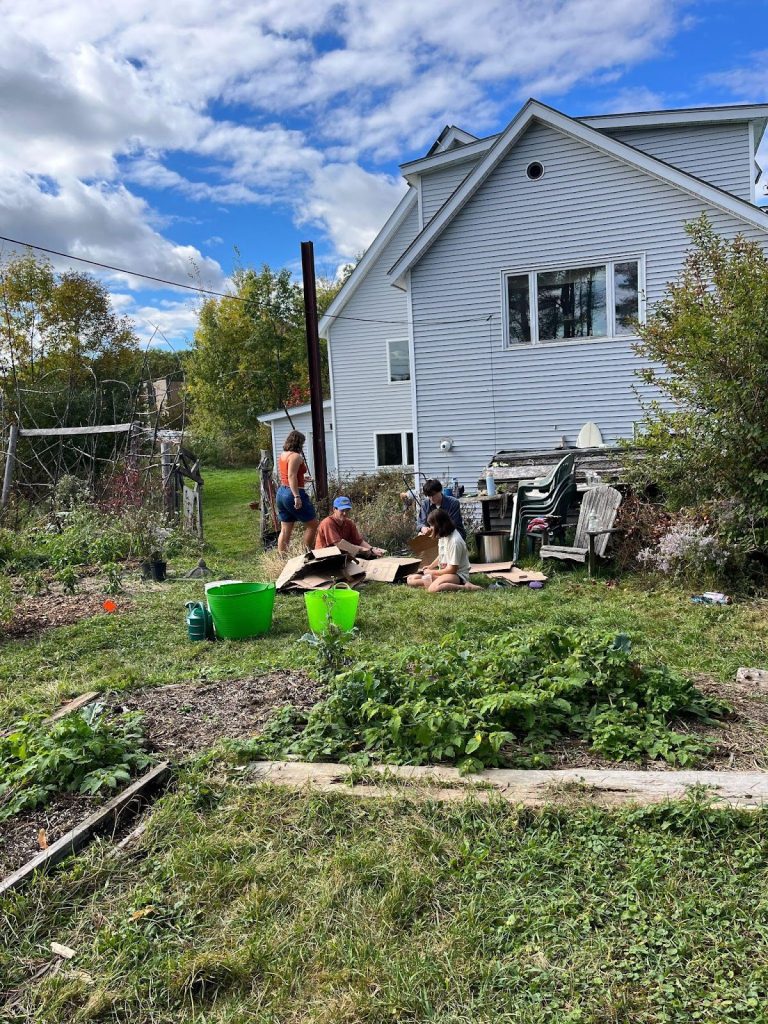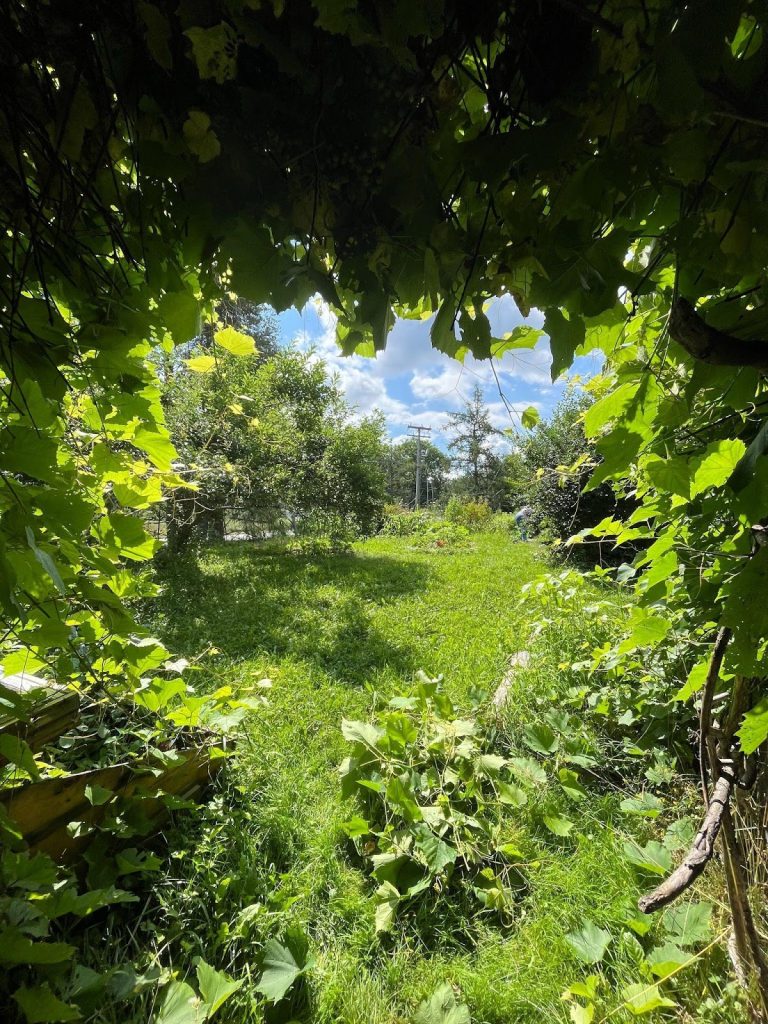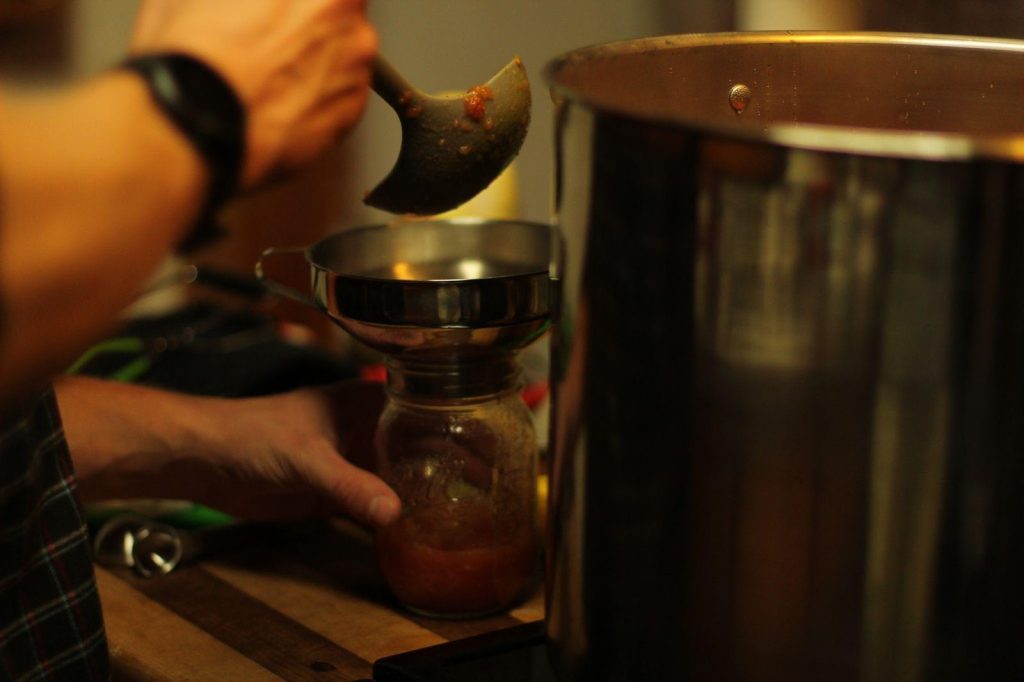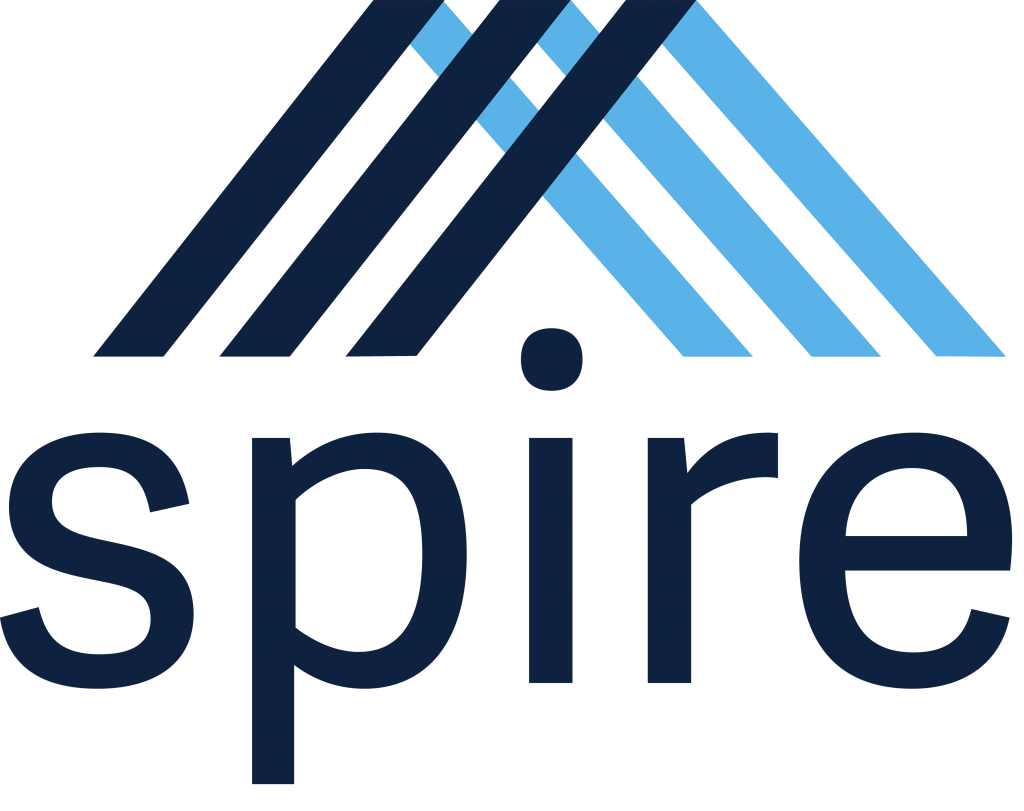The Power of Intentional Cultivation of Land and Community at The Terrell House
By Eddie Nachamie
UMaine’s Terrell House Permaculture Living & Learning Center offers students a way to engage with intentional community, permaculture gardening, and sustainable living through resident steward opportunities. The Terrell House Permaculture Living & Learning Center was established in 2012 as a space for UMaine to host a permaculture demonstration site with opportunities for student housing, instigated by the efforts of Emily Markides, Joline Blais, and Yadina Clark (UMaine Office of Sustainability, 2024). The house offers students the opportunity to live in Orono year-round and grow organic produce in an ecologically designed permaculture garden as “resident stewards”. Permaculture is an ethical and design philosophy that was first articulated by David Holmgren and Bill Mollison in the late 1970s. Originally a combination of the words permanent and agriculture, it has evolved to connote permanent culture because its founders felt that without sufficient care for the earth, people, and equity, human cultures could not survive. It is meant to mimic ecological processes and patterns found within a local community from both a biological and sociological perspective. It owes many of its ethical and design tenets to various Indigenous philosophies which influenced its creation. The framework emphasizes waste reduction, pollution prevention, sustainability, wildlife protection, and improvement of land resiliency and biodiversity (Krebs and Bach, 2018). While this sounds like a great idea for someone who owns a home and is looking to grow their own food, one might wonder how it would work as a college housing opportunity. In practice, the Terrell House operates a UMaine-recognized club called the Permaculture & Gardening Club where resident stewards conduct garden work-days and workshops with students and community members focused on sustainable living and practices.

After being involved with the club during my first year of school, I became a resident steward in May of 2023. As a steward, I’ve been able to learn about and engage in different sustainable agriculture practices in our demonstration garden, gain valuable facilitation skills through events and workshops, and grow into an effective leader for awareness of issues surrounding climate change. The garden is the project that really brings people into the club because of its tangible nature. We teach practical skills about how to care for perennial herbs and plants, strategies for intercropping annuals, and honor Indigenous planting methods such as the Three Sisters (Kapayou et al., 2022). The garden offers students a place to see the fruits of their labors manifested in late summer plums and grapes and early fall apples. Our hard work is human-powered, which gives people a sense of accomplishment and hope that we can imagine a more sustainable food system by working together. Students have remarked that the chance to work in a garden each week was mentally healing and gave them a sense of agency in having a role to play in combating the climate crisis.

As resident stewards, we not only take care of the garden, but also host a variety of events and workshops to engage students and the broader community in discussion about sustainability and resilience. We have conducted workshops centered around food preservation and fermentation ranging from a sourdough bread baking workshop to tomato sauce canning to a kimchi, kombucha, and jam-making day! Teaching these skills helps us to educate the community about preserving the harvest after the growing season is over and ensuring that as little as possible goes to waste. We’ve also held workshops meant to prevent materials from going into the landfill like clothing swaps, tool care, knife sharpening, and mending sessions. These workshops help to circulate resources throughout the community and extend the lifespan of everyday items. We also believe in the power of creating spaces for discussion and dialogue about the climate crisis and how it will impact our lives as young people. Last year, one resident steward focused their honors thesis on conducting a series of biweekly discussion groups that ranged on a diverse array of topics from an introduction to permaculture to agroforestry, to indigenous food traditions, and ecological economics. We host movie nights where we use films to spur further discussion about ways to reimagine our lives and our food system. At the center of our work lies a desire to create a bonded community to create resilience. To achieve this, we also hold regular communal potluck dinners to strengthen relationships and cultivate further discussion.

All of these initiatives and efforts demand that the resident stewards act as leaders and communicators to take care of the garden and put on successful events. This has been incredibly empowering because I have been able to enact real change by funneling my climate anxiety into projects that give students skills to be more resilient. Projects like this are important because they let students test new approaches and ideas that give them agency to be changemakers. There are many powerful ways students can engage with the climate crisis while still maintaining their responsibilities as young scholars. Terrell House offers a model for university students to explore sustainability in a format similar to ecovillages, which have become popular throughout the world in response to dissatisfaction with industrial society. However, ecovillages have struggled because of limitations tied to affordability, infrastructure, commuting time to work, availability of time for community-building, and psychological and emotional well-being of the residents (Temesgen, 2024). University environments offer an opportunity for students to engage in experiments in sustainable living while limiting barriers through subsidized housing, flexible schedules, and increased free time. Other universities across the country have begun experimenting with similar models of intentional, sustainability focused living communities for students. The Ecohouse at Ohio University offers students affordable housing as well as opportunities for gardening and compost on-site coupled with support from faculty in the Department of Sustainability (Welcome to the OHIO Ecohouse, 2025). The Greenbelt Community at Furman University offers students the opportunity to live in a community adjacent to a lake where residents have access to clotheslines, a compost system, and solar panels as part of their housing arrangement, as well as a focus on implementing sustainability solutions on campus (Furman University, 2021). These projects represent other university-led initiatives to allow students to engage in intentional community opportunities coupled with an emphasis on sustainability. These initiatives are growing around the country, as is showcased by Elon University’s Ecovillage Living and Learning Community which opened in fall of 2024 where students have the opportunity to engage in research and academic activities at the school’s adjacent Loy Farm (Ecovillage LLC, 2024). Many universities have implemented green-themed floors in dormitories, but projects like the Terrell House and aforementioned intentional communities create a more engaging and exciting experimental environment for students to learn about gardening and sustainability by giving them agency and responsibility.
The potential for intentional spaces for young people to grow food and engage in community together is evident in the stories that have come out of the Terrell House project. Afternoons spent foraging for wild fiddleheads in the spring and hunting for chaga mushrooms on birch trees in the winter dance in my mind. Imagining new ways to engage in a more intimate relationship with the places we inhabit truly excites me. Hearing stories of club members visiting farms across the state and being inspired to start their own projects energizes our community. Discussing the paths we intend to take together towards careers dedicated to environmental justice and education invigorates my hope for a resilient future. Imagine what would happen if there were dozens of these spaces around UMaine? What about thousands across the country? Millions across the world? What kind of change would be possible if we invested in young people’s agency and imaginations? My work at Terrell House has encouraged me to engage in a deeper relationship with the land and with my surrounding community. My hope is that similar projects around the world could create the same type of transformative change I’ve seen in myself and my peers.
References
Bardan, Roxana. “Temperatures Rising: NASA Confirms 2024 Warmest Year on Record – NASA.” NASA, 10 Jan. 2025, www.nasa.gov/news-release/temperatures-rising-nasa-confirms-2024-warmest-year-on-record/.
Accessed 6 Apr. 2025.
“EcoVillage LLC.” Elon University, 2024, www.elon.edu/u/academics/living-and-learning/living-learning-communities/ecovillage-llc/. Accessed 6 Apr. 2025.
“Greenbelt Community.” Sustainability, 22 Dec. 2021, www.furman.edu/sustainability/programs/greenbelt-community/. Accessed 6 Apr. 2025.
Krebs, J., & Bach, S. (2018). Permaculture—Scientific Evidence of Principles for the Agroecological Design of Farming Systems. Sustainability, 10(9), Article 9. https://doi.org/10.3390/su10093218
Accessed 15 Apr. 2025.
Temesgen, A. K. (2024). Ecovillage scale-up and its well-being challenges: a case study from Norway. Sustainability: Science, Practice and Policy, 20(1). https://doi.org/10.1080/15487733.2024.2393912
Accessed 15 Apr. 2025.
“Terrell House History – Office of Sustainability – University of Maine.” Office of Sustainability, The University of Maine, 21 Jan. 2024, umaine.edu/sustainability/community/terrell-house/history/. Accessed 25 Jan. 2025.
Kapayou, D. G., Herrighty, E. M., Hill, C. G., Camacho, V. C., Nair, A., Winham, D. M., & McDaniel, M. D. (2023). Reuniting the Three Sisters: Collaborative science with Native growers to improve soil and community health. Agriculture and Human Values, 40(1), 65–82. https://doi.org/10.1007/s10460-022-10336-z
Accessed 15 Apr. 2025.
“Welcome to the OHIO Ecohouse | Ohio University.” Ohio.edu, 2025, www.ohio.edu/ecohouse. Accessed 6 Apr. 2025.

